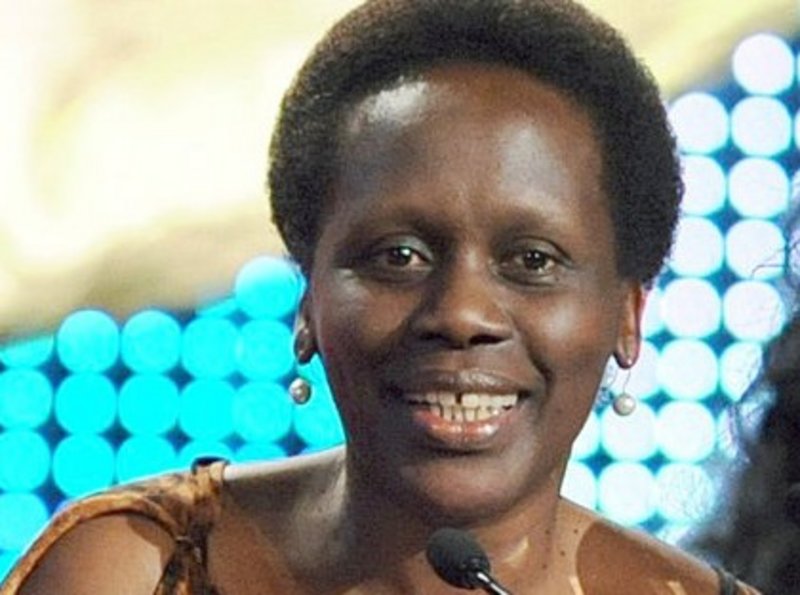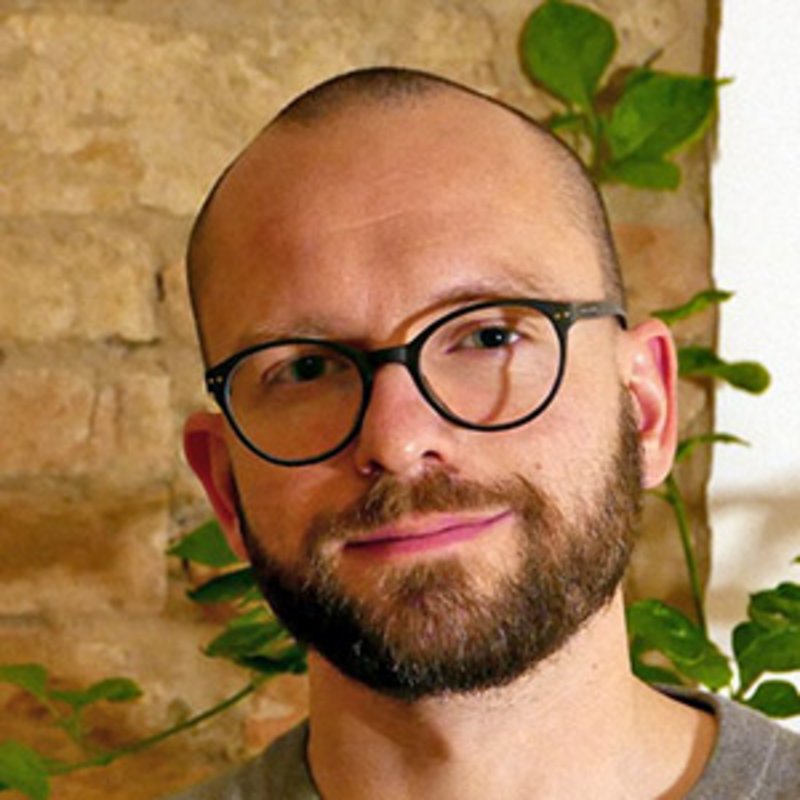Speakers
We are happy to introduce our Speakers for the 2024 Summer School soon. We will be continuously updating this list!

Fatim Selina Diaby
Fatim Selina is a Berlin-born writer, political educator, and poet of German-Guinean descent. Formally trained in Social and Cultural Anthropology, Sociology, Economics and International Politics, she works in the field of peace and conflict research, international policy design and youth organizing. As part of several Black/BIPoC* collectives Fatim Selina organizes and advocates at the intersection of health, climate and racial justice. Writing is another tool they use to disrupt spaces and structures of oppression. Her work has been published by Karl Dietz Verlag, Nomos and Liberolethi among others.

Maik Paap
Maik Paap is a research associate and PhD student in the MeDiMi sub-project "Migration and the Human Rights of 'Health': Paradigms, Practices and Conflicts". He works primarily on discourses on human rights and migration in international organizations with a focus on UN organizations. Maik Paap studied political science (major) and law (minor) at the Leuphana University of Lüneburg. He deepened this combined interest in the Master's program in International Politics and International Law at the Christian-Albrecht University in Kiel. During his studies, he worked in various associations on topics such as development cooperation (Viva con Agua de St. Pauli e.V.) and migration (Refugee Law Clinic Kiel e.V. and Refugee Law Clinics Deutschland e.V.). His research interests lie in the areas of access to human rights for refugees, human rights discourses in international relations and the impact of climate change on law, politics and migration.

Bernd Kasparek
Bernd Kasparek is a mathematician and cultural anthropologist, specialising in Migration and Border Studies. His research interests are the European Migration and Border Regime, Europeanisation, the European border and coast guard agency Frontex, asylum policies in Europe, specifically the Dublin, and digital borders.
He is a founding member of the Network for Critical Migration and Border Regime Studies (kritnet), member of the board of the research association bordermonitoring.eu, and founding member of the board of the journal movements.

Maria El-Safti
Maria El-Safti is a certified trainer from the Berlin Institute, specializing in trauma education and family-oriented counseling. With over twenty years of experience in educational and family counseling, she has been employed by the Pestalozzi-Fröbel-Haus Berlin for twelve years, where she's a child protection specialist and co-founder of the trauma education curriculum. Maria spent two years working with refugee families in Tempelhof hangars, organizing trauma education groups for children and staff training. Since 2012, she has led trauma education groups, focusing on refugee families since 2016. As a freelance lecturer, Maria offers seminars and training on trauma-related topics, especially for educators and psychosocial professionals. She's deeply committed to working with refugee families, having worked in Egypt and Jordan and maintaining connections with women she's met in places like Zaatari. Marias work is a contributing to peace efforts by promoting understanding of trauma and its healing possibilities in society. She is a mother to three girls/ women and a grandmother to two children.

Esther Mujawayo-Keiner
Esther Mujawayo-Keiner is a sociologist, psychotherapist, and human rights advocate, known for her profound contributions to trauma therapy and survivor advocacy for those affected by genocide, war and violence. After losing much of her family during the 1994 genocide in Rwanda, she co-founded AVEGA (Association of Widows of the Genocide), a leading organization providing support, counseling, and rehabilitation for widows and orphans of the Rwandan genocide. Since moving to Germany, Esther Mujawayo-Keiner has been working as a trauma therapist at the Psychosocial Centre for Refugees in Düsseldorf. She has authored several influential works that document the experiences and resilience of genocide survivors, among them “SurVivantes” and “La fleur de Stéphanie”. Esther Mujawayo-Keiner has played a pivotal role in bringing international attention to the psychological needs of survivors and received global recognition for her work in genocide awareness and survivor advocacy.

Julia Manek
Julia Manek is a speaker for psychosocial work at the critical aid and human rights organization medico international. Within this frame, she works on how, in a troubled world, psychosocial work means not simply enduring the conditions in the world that make people ill. As a psychologist and human geographer a spatialized understanding of violence and potential traumatization is central for her to relate transnationally with medico's partner organizations in the so-called Global South.

Karin Mlodoch
Karin Mlodoch is a psychologist (degree from the Free University of Berlin; doctorate from the University of Klagenfurt/Austria). From 2009-2013 she was a research assistant at the Center for Modern Oriental Studies in Berlin (research project “Violence, Memory and Reappraisal in Iraq”). Mlodoch is a founding member and board member of the Association for International Cooperation - HAUKARI e.V. and has been coordinating projects to support and empower survivors of violence, women and young people in the Kurdish Region of Iraq and Iraq for more than 25 years. Her main areas of teaching and research are: the social and political dimensions of trauma; psychosocial practice in crisis and conflict contexts; critical perspectives on knowledge production and transfer in the field of psychology; development of platforms for international knowledge exchange.

Stefan Wagler
Stefan Wagler is a psychologist and licensed psychotherapist specializing in psychosis psychotherapy at a psychiatric hospital in Berlin. He is the Past-President of the Board of the German-speaking Chapter of the Association for for Contextual Behavioral Science (DGKV/ACBS), trainer for Acceptance and Commitment Therapy (ACT), coach for development professionals and trainer for community mental health approaches in the context of development cooperation. His perspective is nourished by Acceptance and Commitment Therapy (ACT) and is underpinned by his experiences as a community mental health consultant in the Middle East, freelance trainer, psychotherapist in acute psychiatry and in outpatient care. The methodological approaches he uses are rooted in mindfulness-based approaches, methods of ACT and interpersonal behavioral therapy, feminist psychotherapy, Schema therapy, the Do-No-Harm approach and others.

Anina Jendreyko
Anina Jendreyko is a theatre artist, director and human rights activist who works with all means of theatre—body, voice, community, and creativity. Born in Germany and raised in Switzerland, she studied acting at the Max Reinhardt UDK in Berlin and worked in various European theatres. Jendreyko later shifted into human rights work, learned Turkish and, among other cultural and educational projects, co-developed a literacy project for women. After living in Turkey, Kurdish areas, and Greece, she returned to Switzerland in 2006 to work as a theatre actress, director, and lecturer. Here, Anina Jendreyko founded the intercultural theatre project "fremd?!" in Basel, which led to the creation of the Volksbühne Basel. Jendreyko is also engaged in political activism in Kurdish regions and has founded the cultural and educational initiative “Kulturbrücke Kurdistan”. Anina Jendreyko specializes in trauma-sensitive work in the context of flight and migration, as well as trauma-centered pedagogy and counseling. Her award-winning work, showcased in several countries, emphasizes trauma-sensitive approaches, community building and empowerment through creative expression and cultural exchange.

Sara Bashir
Sara Bashir is a pharmacist, researcher, and public health practitioner. She is an advocate of addressing health challenges exacerbated by conflict and war. She is committed to evidence-based policymaking and utilizes her expertise to research and devise strategies aimed at advancing Sustainable Development Goals 2 and 3, particularly in conflict-affected regions. Sara has worked with UN WFP, and IPPNW in the MPW project, and is currently stationed in Uganda as a Public Health Journalist and Public Health and Policy researcher with her work focused on the East African Region.
Fluent in Arabic, English, and German, Sara is passionate about learning foreign languages.

Dennis Opondo
Dr. Dennis Opondo is a medical doctor and global health leader with a focus on public health programs for PLHIV, refugees, and asylum seekers. Currently a resident medical officer at the Kenya Red Cross Society in Kakuma/Kalobeyei Refugee settlement, he oversees healthcare for over 70,000 refugees in collaboration with organizations like UNHCR, WFP, and USAID. Beyond his role, Dennis has been active in peace activism with IPPNW for eight years, supporting communication strategies and hosting the first IPPNW World Congress in Africa. He's a member of the IPPNW Climate Working Group, focusing on the Climate-Health nexus, particularly in ASAL counties in Kenya. Additionally, he's part of the Emerging Leaders Network at Pegasus Institute and facilitates Peace through Health courses at the McGill Summer Institute of Global Health. Dennis is an alumnus of the Global Health Summer School 2023 in Berlin, where he conducted a workshop on "Technology Advancements in Healthcare in African War Zones."


